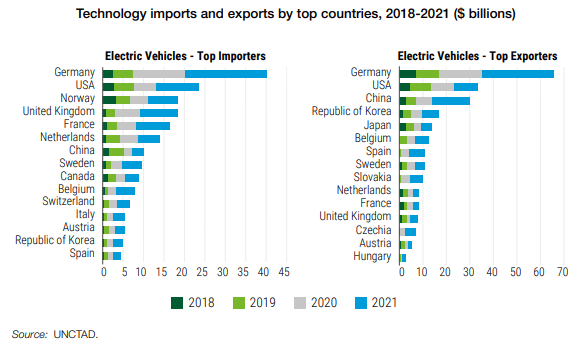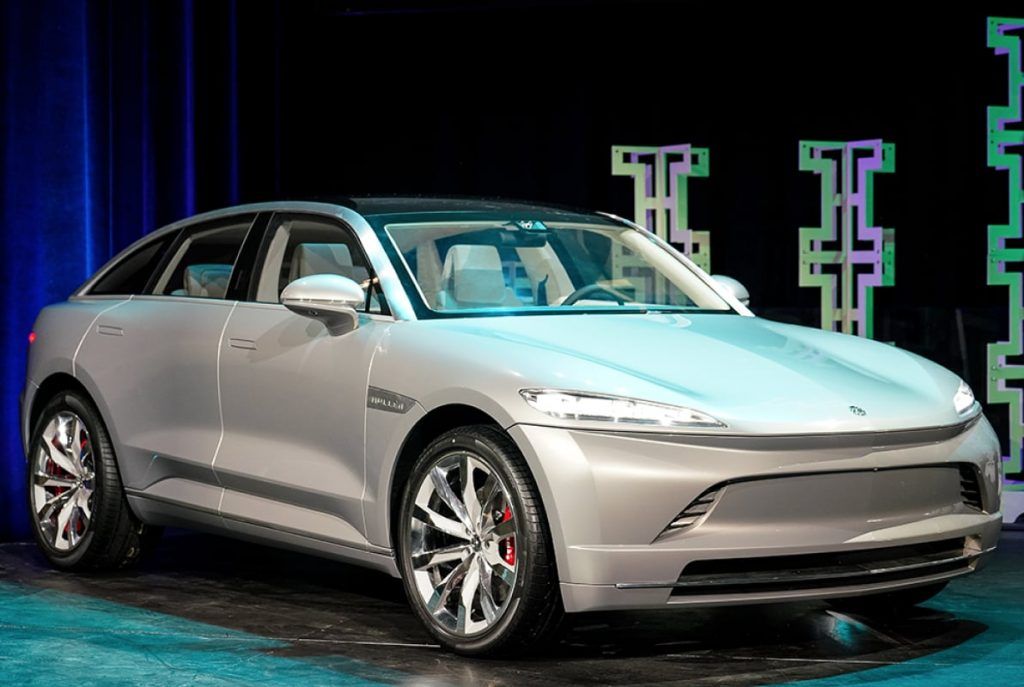Germany, the United States, China, South Korea and Japan were placed as the largest exporters of electric vehicles in the period from 2018 to 2021.
Conversely, the largest importers of electric vehicles in that period were Germany, the United States, Norway, the United Kingdom and France, according to UNCTAD data.

In its Technology and Innovation Report 2023, UNCTAD indicates that exports of electric vehicles from the top 15 exporting countries rose from $28 billion in 2018 to $105 billion in 2021.
For green technologies, total exports from developed economies rose from about $60 billion in 2018 to more than $156 billion in 2021, while imports rose from $89 billion to $188 billion.
Over the same period, developing country exports increased from $57 billion to $75 billion, while imports rose from $48 billion to $63 billion.
Electric vehicles
According to Mullen Automotive, there is a major transformation in the motor vehicle landscape in recent years.
Once only a fringe element in a market dominated by the large global automakers, electric vehicles are fast becoming mainstream.
As a result, Mullen Automotive and other start-ups are developing electric vehicle offerings.
Sales of electric passenger vehicles will continue to rise sharply in the coming years as political pressures increase, more models come to market and consumer interest takes off.
Mullen Automotive projects that plug-in vehicle sales will grow from 6.6 million in 2021 to 20.6 million in 2025.
This is higher than the 2021 forecast, mainly due to increased adoption in China.
Rising battery costs are not derailing EV adoption in the near term.
Some of the factors that are driving the high raw material costs of batteries-war, inflation, trade frictions-are also pushing the price of gasoline and diesel to record highs, which is driving greater consumer interest in electric vehicles.
Internal combustion engine vehicles are also becoming more expensive to produce.
More importantly, the market is shifting from being driven primarily by policy to being driven by organic demand. In many countries, supply limits adoption more than demand.
![]()

